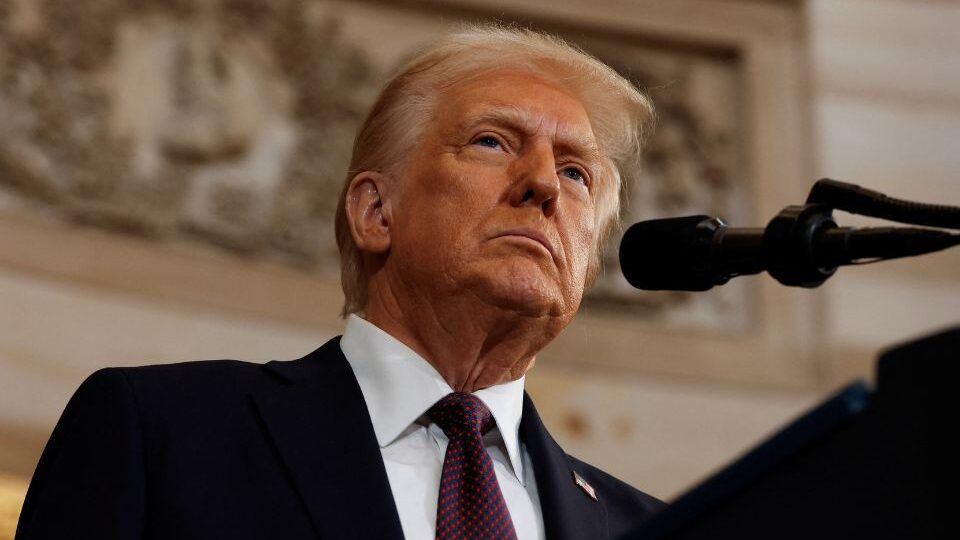US escalates sanctions, criminalizes global use of Huawei’s AI chips.
By Miguel do Rosario, editor of Global South News.
On May 13, the US Department of Commerce issued a sweeping new directive—imperialist, authoritarian, and disturbingly dystopian in scope.
Under this latest order, merely using Huawei’s Ascend 910B, 910C, or 910D artificial intelligence chips could be deemed a violation of US export laws—even if those chips are used outside the United States, including inside China itself.
Although the Ascend chips are designed and manufactured by Huawei, the US government argues that they were developed using American-origin technologies, design software, or manufacturing equipment. That claim triggers the so-called Foreign Direct Product Rule (FDPR), which allows the US to enforce restrictions on any foreign-made product built with American tech, regardless of where it’s produced or deployed.
So, even if a Chinese company uses an Ascend chip inside China, it could be in breach of US law—because, according to the Commerce Department, it’s “highly likely” that the Ascend 910B, 910C, and 910D chips incorporate American technology.
Washington’s crackdown on Huawei began in May 2019, when the company was added to the US “Entity List,” cutting it off from key suppliers and US technologies. That move effectively pushed Huawei out of the global smartphone market, as it lost access to advanced chips from suppliers like TSMC and Samsung.
In response, Huawei ramped up development of its own chips in partnership with Chinese state-owned semiconductor maker SMIC. By 2024 and 2025, the company began mass-delivering the Ascend 910C chips to domestic clients, signaling Huawei’s comeback in the AI sector and posing a serious challenge to Nvidia and Apple’s dominance in China.
In January 2025, the US tightened the screws further, expanding its restrictions on AI chip exports to China and requiring strict licenses for any tech transfers. China countered by launching AI systems like DeepSeek—initially trained on Nvidia hardware but now optimized to run on Huawei’s Ascend chips. DeepSeek quickly stood out for its low cost and high performance, emerging as a competitive alternative to Western models.
The new Commerce Department alert is explicit: any company, in any country, using Huawei’s Ascend chips could face accusations of violating US export controls. That includes Chinese firms using domestically designed and manufactured chips inside China’s own borders.
Even more extreme, the US is now threatening to sanction companies that use Chinese AI models—like DeepSeek, Qwen, or InternLM—even if those models are run on Nvidia chips made in America. The stated goal is to prevent “adversaries” from accessing US technology, but in practice, the measure suffocates the digital sovereignty of countries without domestic AI ecosystems.
Penalties for violations could include trade bans, exclusion from the global financial system, loss of access to essential software, and even arrest of executives traveling through US-allied countries.
Experts like Bill Gates have warned this strategy is likely to backfire, accelerating the development of alternative technologies outside the US orbit. For China and other nations, the only viable response is to double down on building independent tech and financial ecosystems.
As Jonh Pang from Multipolar Peace put it:
“Anyone, anywhere, using Huawei Ascend chips can be prosecuted for violating US export controls. A Chinese company using a 100% China-designed and China-made chip, inside China, would still be in violation. But if you use Nvidia chips to run a Chinese AI model, you’re also in trouble. The future under ‘American AI leadership’ is ChatGPT on Nvidia. Monopoly by decree.”
Timeline of key events:
- May 2019: Huawei added to US Entity List.
- 2024–2025: Huawei launches and distributes Ascend 910C chips at scale.
- January 2025: New US restrictions on advanced AI chip exports to China.
- May 13, 2025: Global alert issued on use of Huawei’s Ascend chips.
This tightening of US rules represents an unprecedented move in extraterritorial enforcement, with direct impacts on other nations’ digital sovereignty and the global tech market. What began as a race for innovation has now escalated into an open battle for technological sovereignty—and the US message is unambiguous: obey or be punished.
—
Sources:
– US Bureau of Industry and Security (BIS)
– Comments by Jonh Pang and Arnaud Bertrand
– Coverage by Reuters, Financial Times, and Nikkei Asia on May 2025 sanctions
– Bloomberg interview with Bill Gates (2025)
